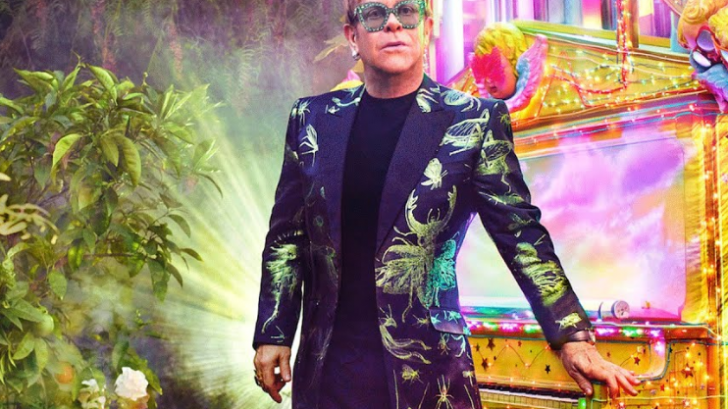Controversies have often surrounded iconic musicians, creating waves of outrage and debate. Just as John Lennon’s famous statement about The Beatles being “more popular than Jesus” stirred intense reactions, Elton John found himself at the center of a similar storm, revealing a deeply personal aspect of his life.
Elton John, celebrated for his timeless hits like “Daniel,” “Tiny Dancer,” and “I Guess That’s Why They Call It the Blues,” made headlines in 1976 when he openly declared his bisexuality.
His close collaborator, Bernie Taupin, compared this revelation to the controversy sparked by John Lennon’s statement years earlier, stating,
“It was a little bit like our version of John Lennon saying The Beatles were bigger than Jesus Christ. It was a temporary hiccup.”
Elton’s decision to be open about his sexual orientation was not without its challenges. In a society less accepting of diverse identities, his honesty triggered temporary unrest among fans and critics alike. However, this setback proved to be short-lived, with Elton and Taupin experiencing significant success in the aftermath of the controversy. Bernie Taupin acknowledged the temporary nature of the turbulence, highlighting that their careers continued to flourish despite the initial backlash.
View this post on Instagram
Looking back at John Lennon’s “more popular than Jesus” statement, made during a 1966 interview.
It’s evident that such controversies have deep historical roots. Lennon’s comment was a reflection on the uncertain future of rock ‘n’ roll compared to established religious beliefs. While his intention was not to assert superiority over Jesus, the statement triggered outrage, particularly in the conservative South of the United States.
Both Elton John and The Beatles weathered these storms of controversy, emerging stronger and more resilient. Their unwavering commitment to authenticity, in both their music and personal lives, became a testament to the enduring power of truth in artistic expression. Despite the initial shockwaves, their legacies as musical giants and pioneers of honesty remain unblemished.
In the grand tapestry of music history, these moments serve as reminders that honesty, even in the face of controversy, can transform artists into legends. Their stories echo through time, inspiring generations to embrace their true selves unapologetically.

